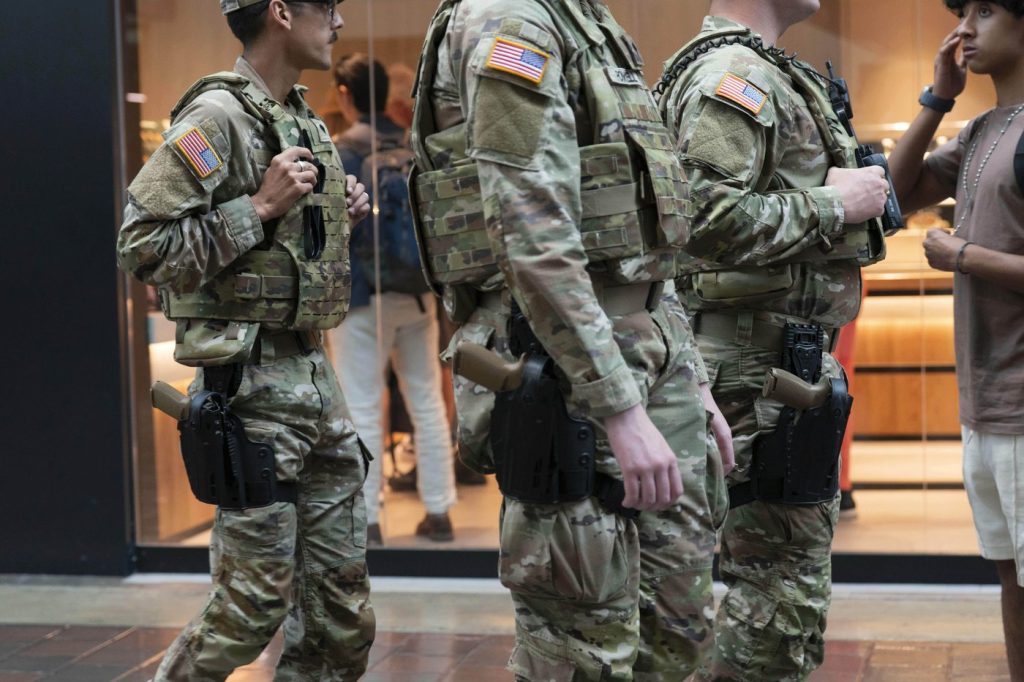President Donald Trump has made headlines by threatening to deploy the National Guard to cities such as Chicago, New York, Seattle, Baltimore, San Francisco, and Portland, Oregon, claiming that there is rampant crime in these areas. However, recent data indicates a significant decline in violent crime throughout the United States, including many major urban centers.
According to crime statistics, homicides in the first half of 2025 dropped markedly when compared to the same period in 2024, continuing a broader trend of decreasing crime rates across the nation following the pandemic. John Roman, a data expert from the University of Chicago’s Center on Public Safety & Justice, stated that while violence persists in certain neighborhoods, there is no city in America facing an outright crisis in crime. He noted, "We’re at a remarkable moment in crime in the United States."
Despite the data, public perception of crime remains concerning. An AP-NORC Center for Public Affairs Research survey revealed that 81% of Americans view crime as a "major problem" in large cities, while support for federal police control sits at just 32%. The public was recently reminded of the ongoing issue of gun violence when a shooting in Minneapolis resulted in the deaths of two children at a Catholic school Mass, underscoring the complexities of urban crime.
Furthermore, data from AH Datalytics highlights that aggravated assaults, encompassing nonfatal shootings, have declined in cities such as Chicago, Portland, Seattle, Baltimore, and San Francisco. In New York, these incidents remained relatively unchanged. While reports of rape increased in some cities, others, like San Francisco, saw a notable 51% decrease. Property crimes, which include theft and burglary, have also mostly declined within the first six months of 2025, diverging from their increase between 2020 and 2024.
City officials and experts defend their local safety strategies and reject Trump’s assertions regarding crime. For instance, Maryland Governor Wes Moore criticized the idea of deploying the National Guard for municipal policing, calling it unsustainable and unconstitutional. Meanwhile, Baltimore has managed to reduce violent crime through community-based services, mentorship programs, and job opportunities for at-risk youth. Michael Scott, director of the Center for Problem-Oriented Policing at Arizona State University, emphasized that these strategies have proven effective in lowering homicides and shootings significantly.
Trump's narrative does not seem to extend to cities in Republican-leaning states, such as Charlotte, North Carolina, which recorded 105 homicides in 2024. Despite the rising crime rates, including an increase in vehicle thefts, there hasn't been any discussion about sending the National Guard to Charlotte. Residents like Amy Holt, who recently relocated there, expressed concerns about the idea of military involvement in policing, describing it as "alarming" and "scary."
Democratic leaders in the cities targeted by Trump have publicly refuted his claims regarding crime levels. San Francisco Mayor Daniel Lurie pointed out that crime rates in the city are at their lowest in decades, suggesting that visitors are returning and the community is on an upward trajectory.
Experts also question the practicality of deploying the National Guard in urban settings, arguing that it may breed fear among residents rather than provide reassurance. Scott highlighted that such military presence could lead people to think, "Things must be much worse than I realize to have the military in my neighborhood." This sentiment indicates that instilling fear and apprehension may outweigh the intended messages of safety and security.
The ongoing dialogue surrounding crime and policing in America reflects broader societal tensions and differing interpretations of public safety. As cities employ various strategies to combat crime, the effectiveness and implications of federal intervention remain under scrutiny.











